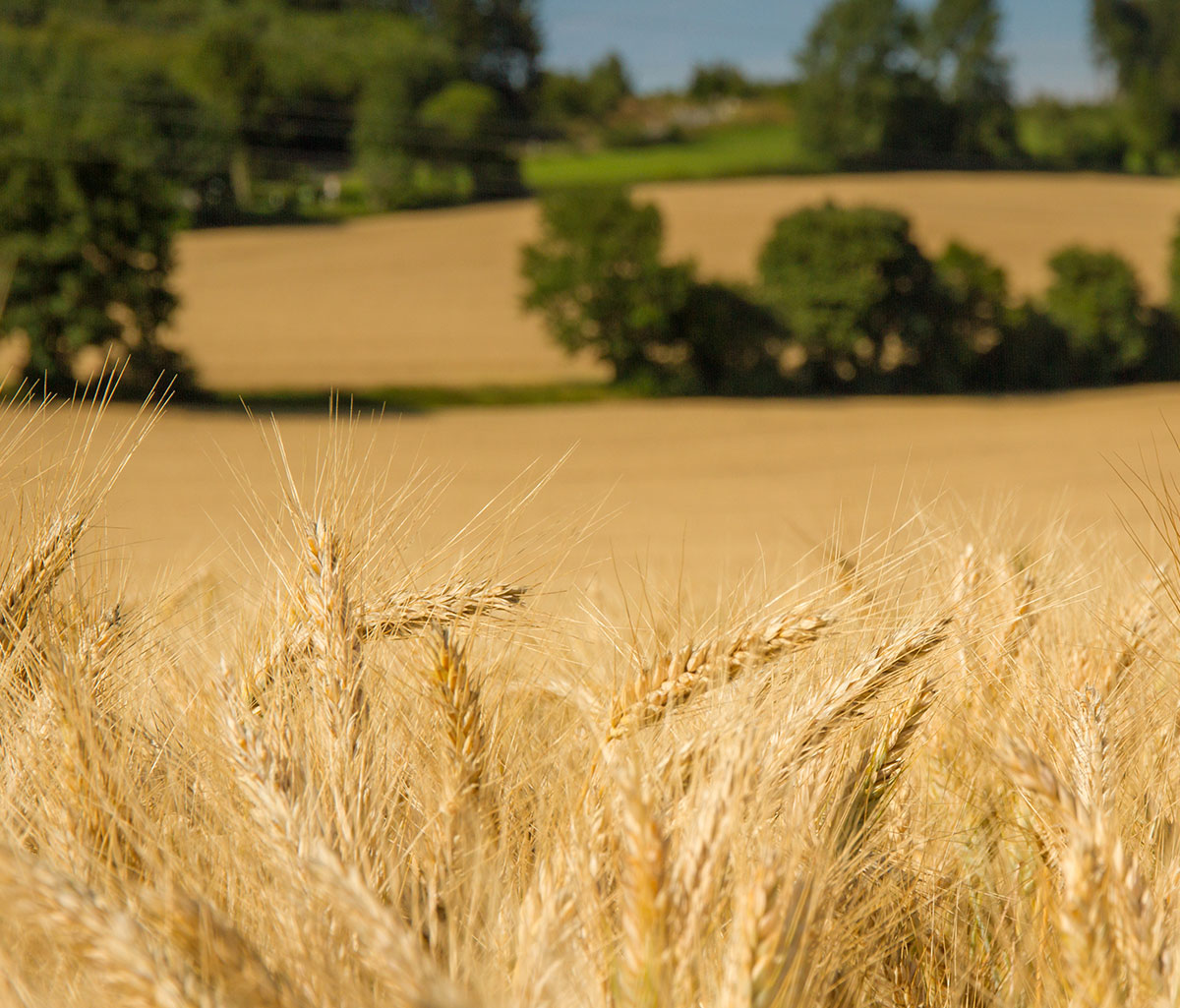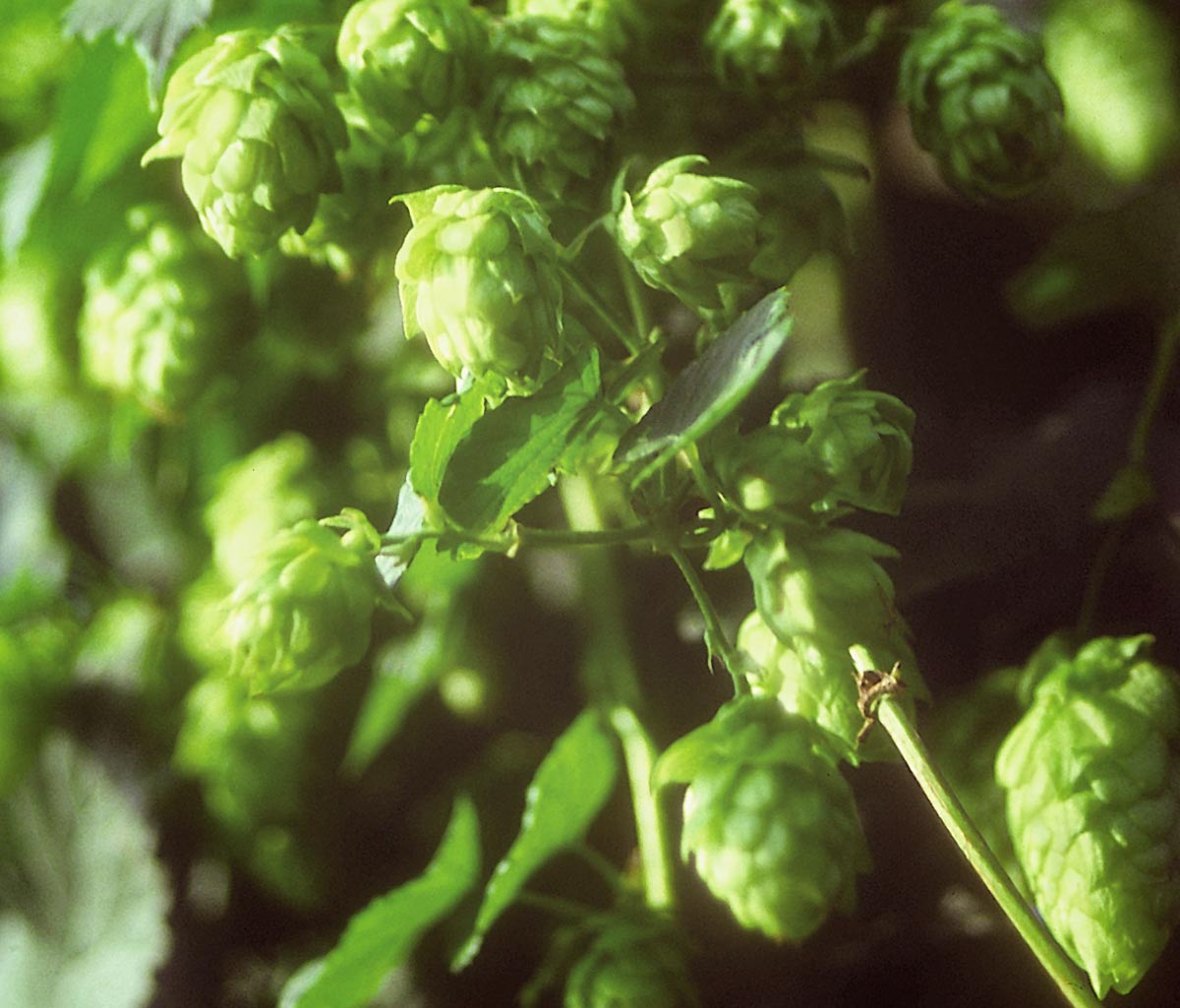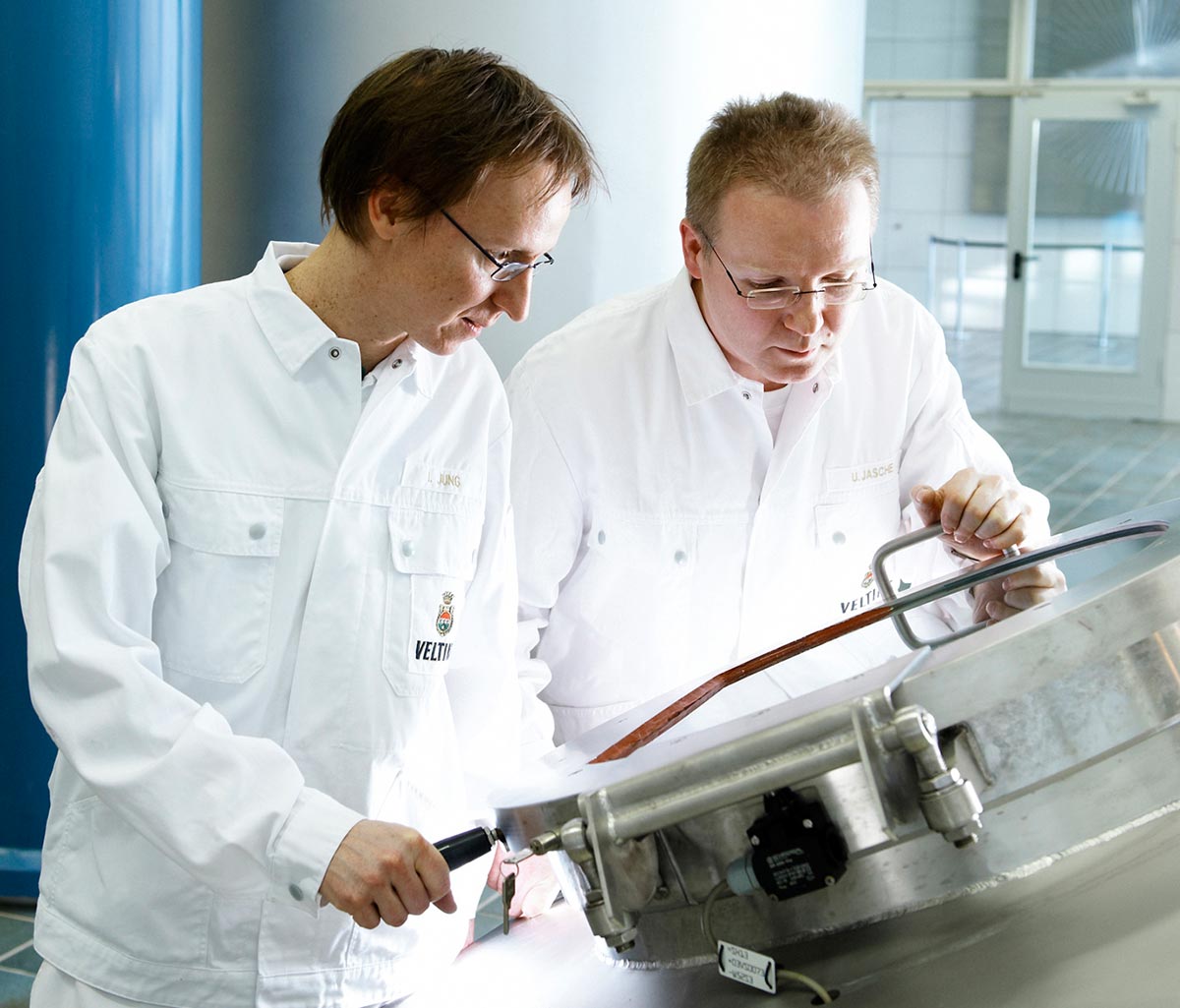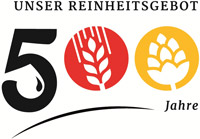
Brewing water from the brewery's own springs
A tastefully balanced beer in the Pilsener brewing tradition is only achieved using particularly soft brewing water.
That's why we brew fresh Veltins with soft spring water from our seven in-house springs, which have always flowed from the Homert Natural Park in Hochsauerland.
Analyses confirm that this water, due to its particularly low level of hardness, is ideal for our very specific brewing process.
High quality barley malt
In keeping with the tradition of the German Purity Law of 1516, our brewers are extremely appreciative of our barley malt.
For fresh VELTINS, we only use high-quality double spaced malting barley from traditional growing areas. The quality of the barley is determined in the malthouse.
Under the constant control of our experts, we permanently ensure that only the best barley malt reaches our brewing kettles.


Harvest-fresh hops
The hops are the "soul of the beer". That's why we brew our fresh VELTINS with a high-quality German aroma and bitter hops grown by our own contract cultivation. This gives our Pilsener beer its very specific aroma and its typical fine-dry taste.
As one of the few German breweries to do so, we always use fresh hops that have been processed according to the old brewing tradition and we consciously refrain from using hop extract.
In the agricultural hop growing area of Hallertau, a dedicated member of our staff oversees compliance with indispensable quality standards.
A special brewing technique
As a German premium brewery, C. & A. VELTINS uses a special, gentle pitching procedure for the production of VELTINS Pilsener. The boiled wort is moved to open vats for fermentation.
After adding our own selected pure yeast and without applying any technical pressure, the fermentation can take place without hurry.
This is how the especially fresh character of our VELTINS Pilsener is created.

The German Purity Law
 In Germany, four natural ingredients may be used for brewing beer – water, malt, hops and yeast. This is governed by the Purity Law of 1516, the oldest, valid consumer protection law in the world that is still unchanged. It stands for transparency, naturalness, clarity and purity. The regulation, known today as the Purity Law, was promulgated in order to improve the quality of the beer which, at that time, was a staple among the population. The various types of beer reflect the centuries-old, regionally differentiated brewing techniques – a world-wide unique diversity that has to be preserved. In addition, the EU has awarded German beer, brewed in accordance with the Purity Law, the special status of a protected "traditional food" – the only product to have this status.
In Germany, four natural ingredients may be used for brewing beer – water, malt, hops and yeast. This is governed by the Purity Law of 1516, the oldest, valid consumer protection law in the world that is still unchanged. It stands for transparency, naturalness, clarity and purity. The regulation, known today as the Purity Law, was promulgated in order to improve the quality of the beer which, at that time, was a staple among the population. The various types of beer reflect the centuries-old, regionally differentiated brewing techniques – a world-wide unique diversity that has to be preserved. In addition, the EU has awarded German beer, brewed in accordance with the Purity Law, the special status of a protected "traditional food" – the only product to have this status.
Quality as a result of high quality raw materials
German brewers pay particular attention in making sure that the raw materials they use are of the highest quality. This is because in Germany, the subsequent manipulation of beers using chemicals is not permitted. The Purity Law not only governs what is allowed in beer, but above all, ingredients which mustn‘t be used for brewing. For example, artificial flavours, colours and genetically modified raw materials are not allowed. This makes brewing in Germany much more laborious and demanding than in most foreign breweries. Throughout all of the processing stages, the raw materials are subject to continuous, wide-ranging controls with regard to the residue and contaminants. The quality of the raw materials is also characterised by the fact that they are not genetically modified. Genetic modification is ruled out in the case of raw materials for beer production – i.e. barley and wheat, but also in hops and yeast as well. The Purity Law therefore guarantees a product that is always constant and perfect with the highest level of security.
Popularity around the world and importance of the Purity Law
Even in the furthest flung corner of the world, you’ll find breweries that produce beer in accordance with the Purity Law. German training centres for brewers and maltsters enjoy the same excellent reputation worldwide as the Purity Law. As such, aspiring brewers and maltsters from all over the world come to Germany to complete their training or studies.
Here in Germany, compliance with the Purity Law is a matter of course for most brewers, but at the same time, the ability to brew a large range of high-quality beers from just four ingredients is a great challenge and an art. Despite the same ingredients, around 5,500 different, characterful beers are produced every day in over 1,300 German breweries. Important factors for brewing include the hardness of the water, the choice of the malt and hops, the strain of yeast and the mashing process. In addition, there are the fermentation conditions in the fermentation tank. Experts have calculated that there are more than a million different ways to brew a beer in accordance with the Purity Law.





